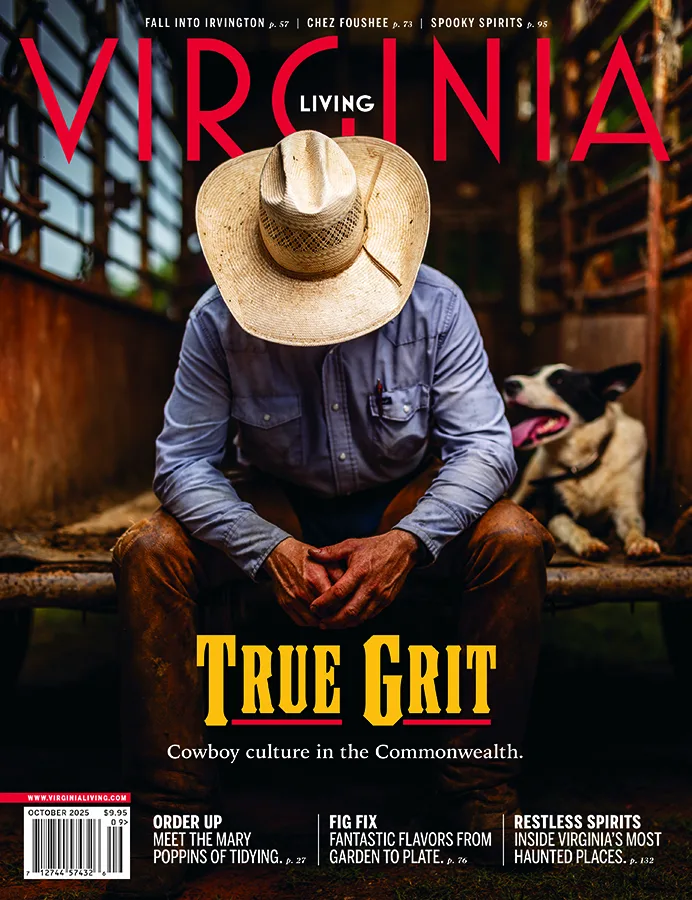Acclaimed documentary about jazz musician John Coltrane to screen at the Afrikana Film Festival in Richmond.

Between 1957 and 1967— from John Coltrane’s recovery from heroin addiction to his untimely death at age 40 from liver cancer—the saxophonist not only reinvented jazz, but he established himself as one of the genre’s biggest icons and, eventually, one of the most sanctified figures in all of music. Director John Scheinfeld’s acclaimed film documentary Chasing Trane will screen Friday, Sept. 15 as part of the Afrikana Film Festival in Richmond, and is a genuine attempt to explore the life and career of a man obsessed with musical innovation—a man who never gave a television interview and yet said so much through his music.
The screening at The Grace Street Theater coincidentally occurs on the 60-year anniversary of the day Coltrane recorded Blue Train, his first landmark album for Blue Note Records. After the screening, a panel featuring Richmond Jazz musician J. Plunky Branch and New York based rap star Talib Kweli will discuss and dissect the music and message of the man whom his fans and friends affectionately call Trane.
“John Coltrane is my most significant saxophone idol and inspiration,” says Branch, who made a name for himself in the 1970s with his avant-garde jazz group Oneness of Juju.
Born Sept. 23, 1926, in Hamlet, North Carolina, Coltrane spent most of his childhood in High Point until he moved to Philadelphia as a teenager. An unusually quiet young man with luminous eyes and excessive interest in music, he studied the saxophone with patience and practiced on his instrument with near unmatched discipline and fiery intensity.
After World War II, Coltrane cut his teeth in a U.S. Navy band and traveled with numerous Be-Bop groups throughout the late 1940s and early 1950s. His first breakthrough came when Miles Davis asked him to join what became known as the trumpeter’s “first great quintet” in 1955. But Coltrane’s battle with alcoholism and drug addiction contributed to the group’s eventual breakup and might have made him another junkie casualty had it not been for what the saxophonist later described in the liner notes of his masterpiece album A Love Supreme as a “spiritual awakening,” which led him to abandon his addictions and dedicate his work to God.
In the decade that followed, Coltrane made groundbreaking contributions to jazz. His style changed toward a more harmonically static approach that allowed him to explore his improvisations rhythmically and melodically on albums like Giant Steps, My Favorite Things and Live at the Village Vanguard, pushing him towards avant-garde jazz in the final years of his life.
“Because he was already an established jazz star, having earned critical acclaim, he elevated the legitimacy of ‘the New Thing,’” says Branch. “While there were several sub-genres and approaches to the new music, most of its adherents were intent upon charting new directions in modern jazz by challenging the established order, inventing new approaches to the ways instruments were played and changing the aesthetics of what would be considered valid, beautiful and important.”
For his documentary, Scheinfeld interviewed some of Coltrane’s peers, including saxophonists Wayne Shorter and Benny Golson and stars such as guitarist Santana, who talks about burning incense and playing A Love Supreme to cleanse the spirits out of hotel rooms. Former President Bill Clinton, a fellow saxophonist, and social critic Cornel West are also among the many Coltrane fans to weigh in.
“This is one of the first authorized documentaries about Coltrane, and I think it is a great opportunity to entertain and educate our audience,” says Enjoli Moon, organizer of the Afrikana Film Festival. “I hope people will walk away with a greater understanding of the impact that music can have on society and on us personally, and what it means to be a spiritual radical like Coltrane.”
Coltrane had an impact on every saxophonist of his time and since, says Branch. “Ultimately his influence was felt beyond jazz into popular music, rock, soul and hip-hop. My hope is that the documentary film will introduce his music to some new fans and re-familiarize his story to jazz fans who already rever the master saxophonist,” Branch says.
Chasing Trane screens at the Afrikana Film Festival Friday, Sept. 15 at 7:00 p.m. Tickets are $15 and include the panel discussion after the film. AfrikanaFilmFestival.org








